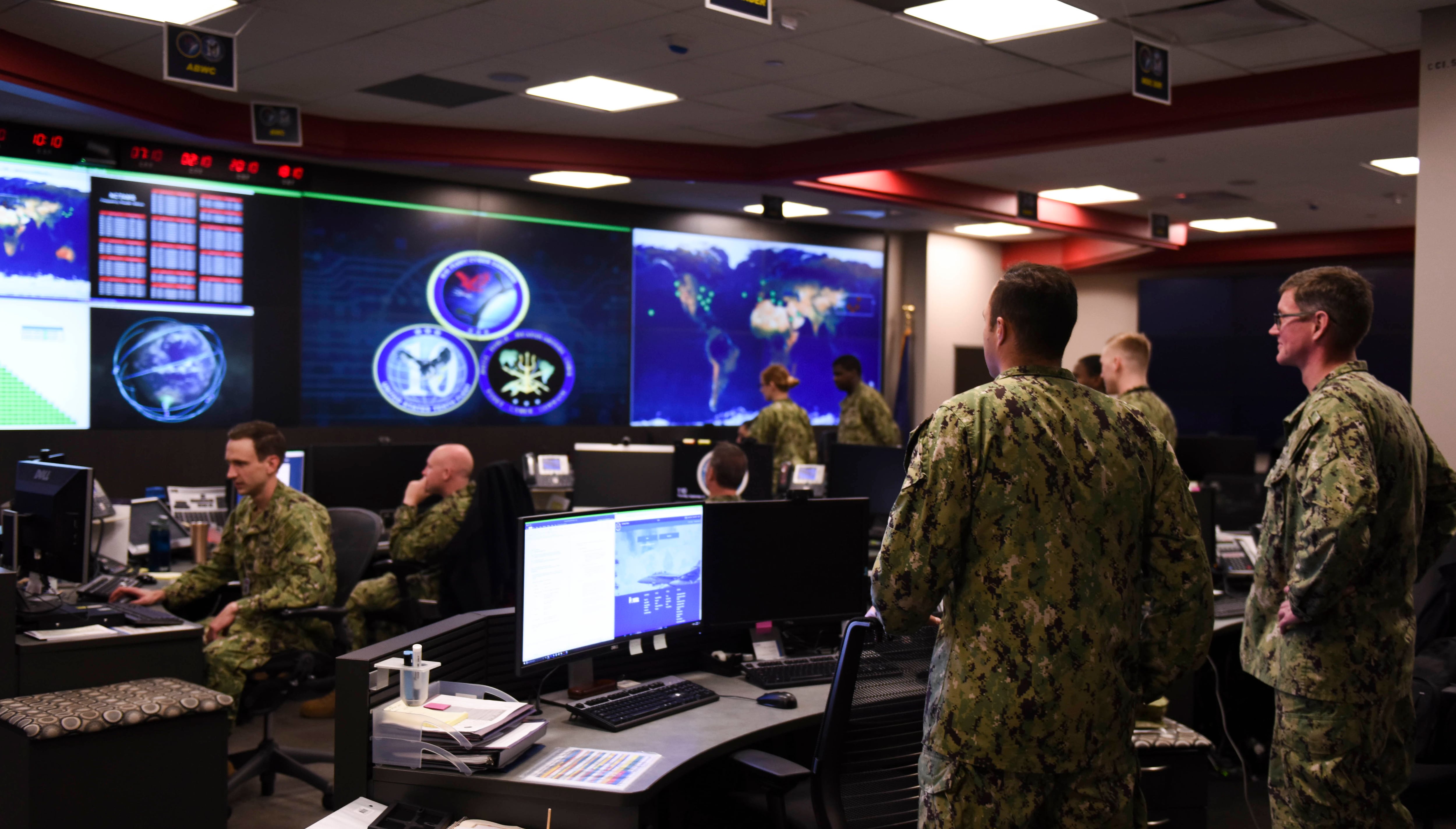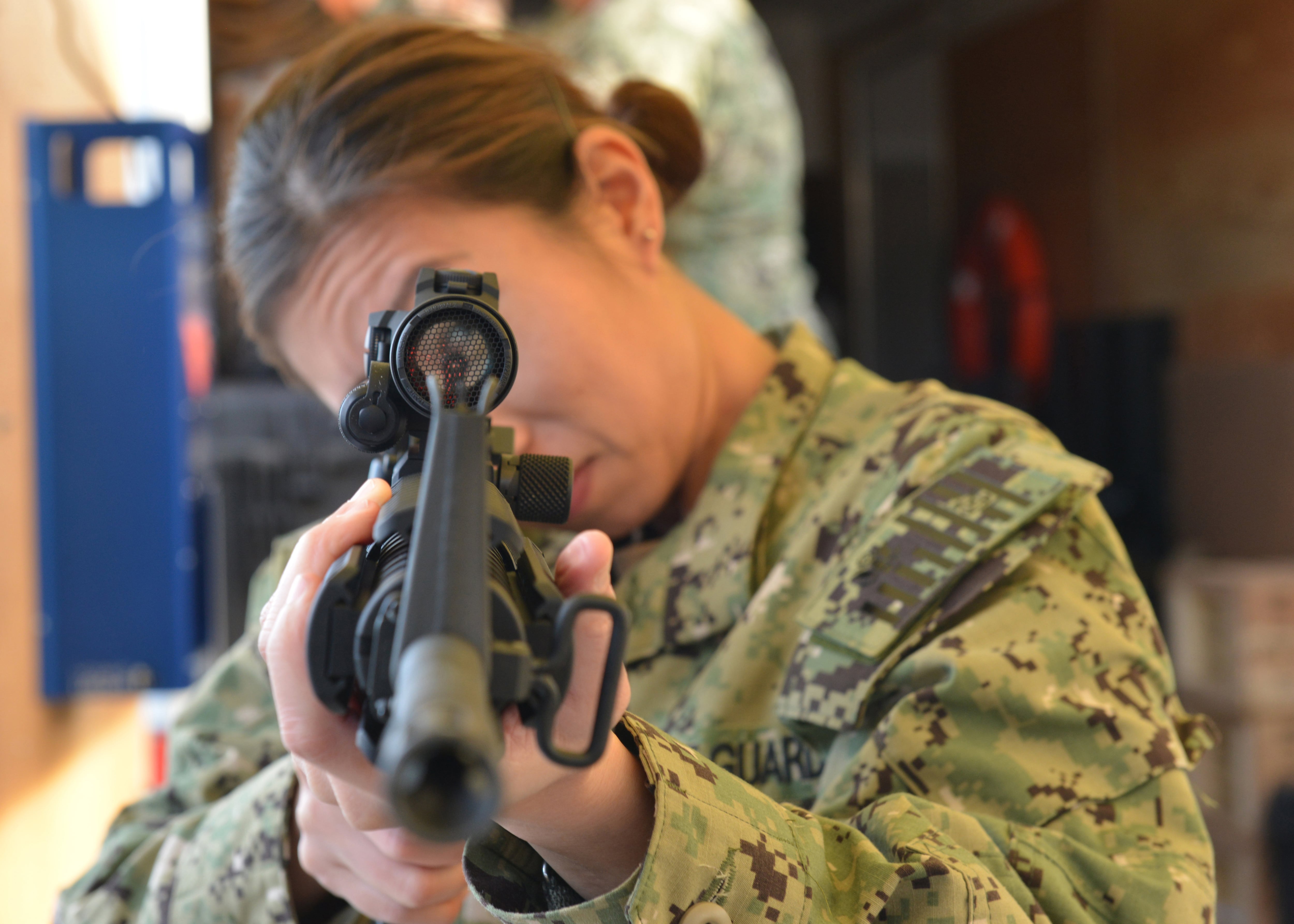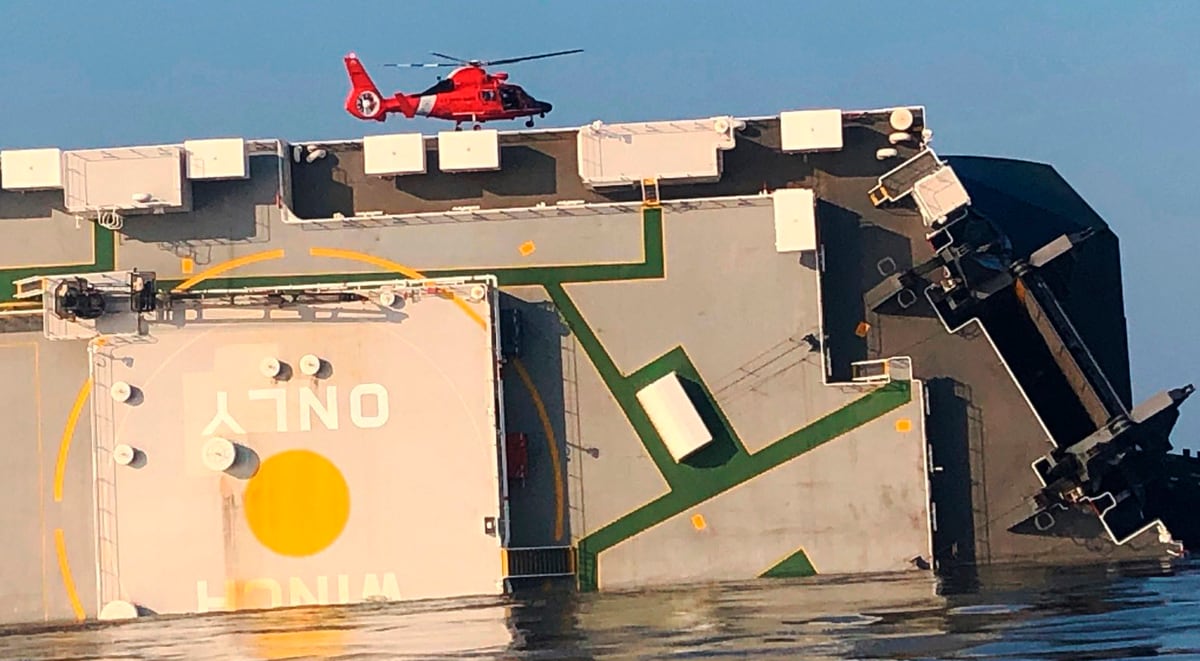Years of skimpy investments have left the U.S. Coast Guard’s information technology on “the brink of catastrophic failure,” Commandant Adm. Karl Schultz warned Thursday during his annual State of the Coast Guard address in Charleston, South Carolina.
The 1990s-era hardware, software and analytics require massive and immediate upgrades, Schultz said.
“Just this past summer, over 95 vital systems went offline for several days due to a single server malfunction, impacting our ability to save U.S. citizens, thwart criminals, defend our nation, and yes, even to simply check our email,” said Schultz, who placed the service’s annual IT funding shortfall at $300 million.
“Our people will never fail our country, but our technology is failing our people.”
While the commandant lauded lawmakers for increasing funding for new Coast Guard ships, including much-needed polar icebreakers, he also checked off other areas where his sea service is suffering, including shore infrastructure.
“Due to years of flat-line budgets forcing trade-offs, the facilities that our men and women deploy from and return to are crumbling around them,” Schultz said, adding that 40 percent of his service’s structures are more than 50 years old.
“Mold, leaky roofs, flooding, outdated building standards,” Schultz said. “These have all culminated in a $2 billion backlog of facility repairs. Every day that we continue to operate with antiquated infrastructure, it gets harder to protect our modern maritime economy, harder to save those in peril, harder to attract talented men and women into our ranks and ultimately harder to defend our nation.”
RELATED

At Coast Guard Station Niagara, New York, where the Niagara River meets Lake Ontario, record-breaking flooding inundated the base.
“The crew pumped out 200,000 gallons of water daily and worked around the clock to keep their station operational,” Schultz said. “Despite such challenges, these dedicated Coasties still rescued 45 people.”
By contrast, “modern and resilient” facilities stand in Houston and they withstood the Category 4 Hurricane Harvey in 2017, allowing the Coasties to save nearly 12,000 lives, Schulz said.
“This is the value proposition of fully addressing the Coast Guard’s massive and untenable shore infrastructure backlog,” he added.
RELATED

While noting the struggle to keep talented Coasties in uniform, Schultz showcased reforms to the service’s childcare subsidy program.
The transition to a new program that partners with the Navy triggered an enrollment backlog that slowed reimbursements to service members, but that problem is being fixed and more than 1,600 Coast Guard kids have entered the initiative — nearly 500 more than under previous programs.
Schultz highlighted ongoing efforts to make the Coast Guard more diverse and inclusive and said a study looking at underrepresented minorities in the force will be released this summer. His service also plans to launch a four-year diversity and inclusion action plan that Schultz said would “provide leaders at every level with the skills to realize the full potential of our talented workforce.”
Turning to the Coast Guard’s global operations, he applauded crews for their response to Hurricane Dorian in the Bahamas and for continued efforts to interdict narco subs in the Eastern Pacific Ocean.
He lauded the Legend-class cutter Bertholf’s late March transit of the Taiwan Strait, a movement that reinforced the U.S. position that those are international waters.
He also praised Coast Guard efforts to rescue 24 mariners trapped on the cargo ship Golden Ray after it capsized on Sept. 8, soon after it departed the Port of Brunswick, about 70 miles south of Savannah.
“From our humble beginnings with just 10 wooden brigantine sailing vessels, through today, where our iconic racing stripe, branded on our cutters and aircraft, is recognized as a symbol of responsible maritime governance, your Coast Guard serves across the globe to advance American security and prosperity,” Schultz said.
RELATED

Geoff is the managing editor of Military Times, but he still loves writing stories. He covered Iraq and Afghanistan extensively and was a reporter at the Chicago Tribune. He welcomes any and all kinds of tips at geoffz@militarytimes.com.





